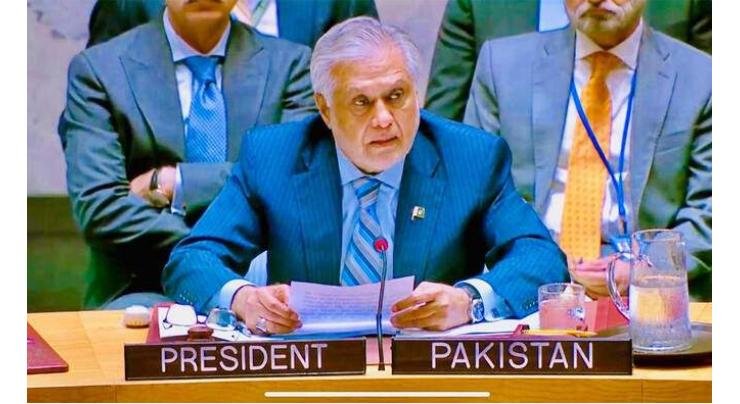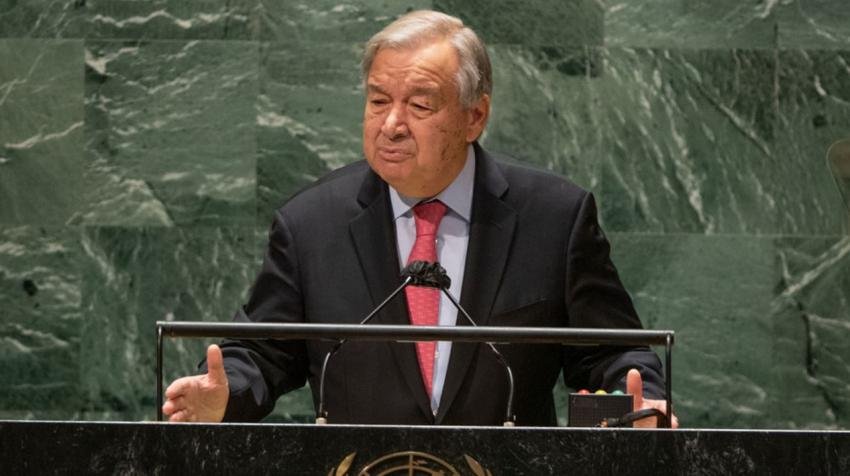Introduction to the Partnership
The recent presidential statement by the United Nations Security Council (UNSC) recognizing the Organization of Islamic Cooperation (OIC) marks a significant step towards enhancing collaboration in the realm of global peacekeeping and conflict resolution. This acknowledgment underscores the vital role that the OIC plays in fostering stability within its member states and beyond, highlighting the need for concerted efforts to address complex international challenges. The partnership between these two prominent bodies aims to harness their collective strengths in promoting peace, particularly in regions where tensions are high.
The OIC, comprising 57 member countries, is one of the largest intergovernmental organizations after the United Nations. It serves as a platform for Islamic solidarity and seeks to address political, economic, and social issues affecting Muslims worldwide. By recognizing the OIC as a critical partner, the UNSC emphasizes the importance of including diverse perspectives in peace efforts, thus enriching the diplomatic dialogue necessary for effective conflict mediation. This partnership signals a shift towards more inclusive approaches aimed at preventing conflict and managing crises through cooperative frameworks.
Moreover, the implications of this partnership extend beyond mere acknowledgment; it represents an opportunity to enhance initiatives focused on conflict prevention and resolution in areas plagued with violence and instability. The strengthening of partnerships between international entities like the UNSC and the OIC can pave the way for joint strategies that leverage their combined expertise and resources. Through collaborative mechanisms, both organizations can work together to identify early warning signs of conflict, facilitate peace negotiations, and provide humanitarian assistance, thus playing a crucial role in ensuring sustainable peace efforts worldwide.
Strengthening Cooperation for Conflict Resolution
The UN Security Council (UNSC) has recognized the crucial role that the Organization of Islamic Cooperation (OIC) can play in promoting global peace and stability. To this end, the UNSC has made specific calls for improved collaboration with the OIC, particularly in the realm of conflict resolution. Such a partnership is essential given the complex geopolitical landscape and the multifaceted nature of contemporary conflicts.
One of the primary areas for cooperation is the development of comprehensive conflict resolution strategies. These strategies aim to address not only the symptoms of conflict but also their underlying causes. By leveraging the OIC’s unique insights into cultural and religious dimensions of conflicts, the UNSC can craft more nuanced approaches that respect local contexts and address the needs of affected communities. This initiative emphasizes the importance of a collaborative framework that encourages the sharing of resources, expertise, and information between both organizations.
Another critical aspect of the proposed collaboration involves the establishment of early warning systems designed to identify potential crises before they escalate into violent conflicts. By partnering with the OIC, the UNSC can utilize the OIC’s regional knowledge and networks, thereby enhancing its ability to predict and mitigate humanitarian crises. These early interventions are vital in fostering peace and stability, as they allow for timely diplomatic engagements and effective conflict prevention measures.
Finally, the UNSC has emphasized the importance of humanitarian aid in conflict scenarios. Effective coordination with the OIC can ensure that humanitarian assistance reaches those in need more efficiently and effectively. As conflicts often exacerbate humanitarian needs, integrating the OIC’s capabilities in facilitating aid delivery with the UNSC’s strategic oversight can create a powerful mechanism for alleviating suffering and fostering recovery. This partnership’s overall potential lies in its ability to forge stronger responses to conflicts, ultimately contributing to a more stable global landscape.
The Importance of the Middle East Focus
The Middle East has long been a focal point for the United Nations Security Council (UNSC) due to its complex geopolitical landscape and ongoing conflicts, particularly regarding the situation in Palestine. The UNSC’s emphasis on this region reflects the international community’s recognition of the urgency surrounding peace and security issues in the Middle East. The Israeli-Palestinian conflict remains one of the most pressing matters, with the UNSC calling for a peaceful resolution to establish enduring stability in the area.
Within this context, the Organization of Islamic Cooperation (OIC) plays a proactive and pivotal role. The OIC consistently advocates for a two-state solution, which envisions an independent State of Palestine existing alongside Israel as a means to satisfy the national aspirations of both peoples. This approach garners support from many member states and allows the OIC to present a united front in negotiations at international platforms.
The OIC also stands firmly against Israeli settlements in the occupied territories, which it views as a significant barrier to peace. These settlements not only escalate tensions but also complicate efforts to achieve a peaceful resolution based on recognized borders. The organization’s stance on this issue reflects its broader commitment to seeking justice for Palestinians and advocating for their rights on the global stage.
In addition to addressing the political dimensions of the conflict, the OIC emphasizes humanitarian aspects, such as the reconstruction of Gaza. Following repeated conflicts that have devastated the region, the OIC seeks to mobilize resources and support for rebuilding efforts. This commitment is integral to restoring stability and fostering conditions conducive to peace in the Middle East. Thus, the collaboration between the UNSC and the OIC is critical in addressing these multifaceted challenges, demonstrating a collective dedication to promoting peace and security in this vital region.
Looking Ahead: Future Directions for UN-OIC Collaboration
The future of collaboration between the United Nations (UN) and the Organization of Islamic Cooperation (OIC) holds significant promise in addressing contemporary global challenges, particularly in promoting international peace. Both organizations have recognized the need for closer ties to strengthen their collective efforts in improving stability, security, and humanitarian conditions in various regions. Future strategies for collaboration may focus on several key areas, including conflict resolution, counter-terrorism initiatives, and humanitarian aid.
One potential direction for enhanced cooperation is the establishment of joint task forces that would allow for a more integrated approach to conflict prevention and resolution. Such task forces could leverage the OIC’s on-the-ground understanding of local issues in Muslim-majority regions and the UN’s broader international framework. This partnership could facilitate mediation efforts and create mechanisms for dialogue, thereby addressing the root causes of conflicts more effectively.
Additionally, the UN and OIC can collaborate on counter-terrorism initiatives that respect human rights while addressing security concerns. Strengthening cooperation in this area can provide a balanced approach, promoting peace while countering extremist ideologies that often exploit socio-political grievances in Muslim contexts. Educational programs aimed at youth empowerment in conflict-prone areas could serve as preventive measures against radicalization, reflecting mutual interests in fostering peace and security.
Humanitarian efforts, particularly those addressing migration and refugee crises resulting from conflicts, represent another cooperative domain. Both organizations can advocate for policies that protect the rights and dignity of displaced populations while also facilitating their successful reintegration into society. Such endeavors not only enhance their humanitarian work but also contribute positively to international peace efforts.
As the UN and OIC explore these collaborative avenues, they must remain committed to fostering dialogue and understanding across cultures. The implications of their joint efforts extend beyond Muslim-majority regions, potentially shaping global strategies for peace and stability in an increasingly interconnected world.




